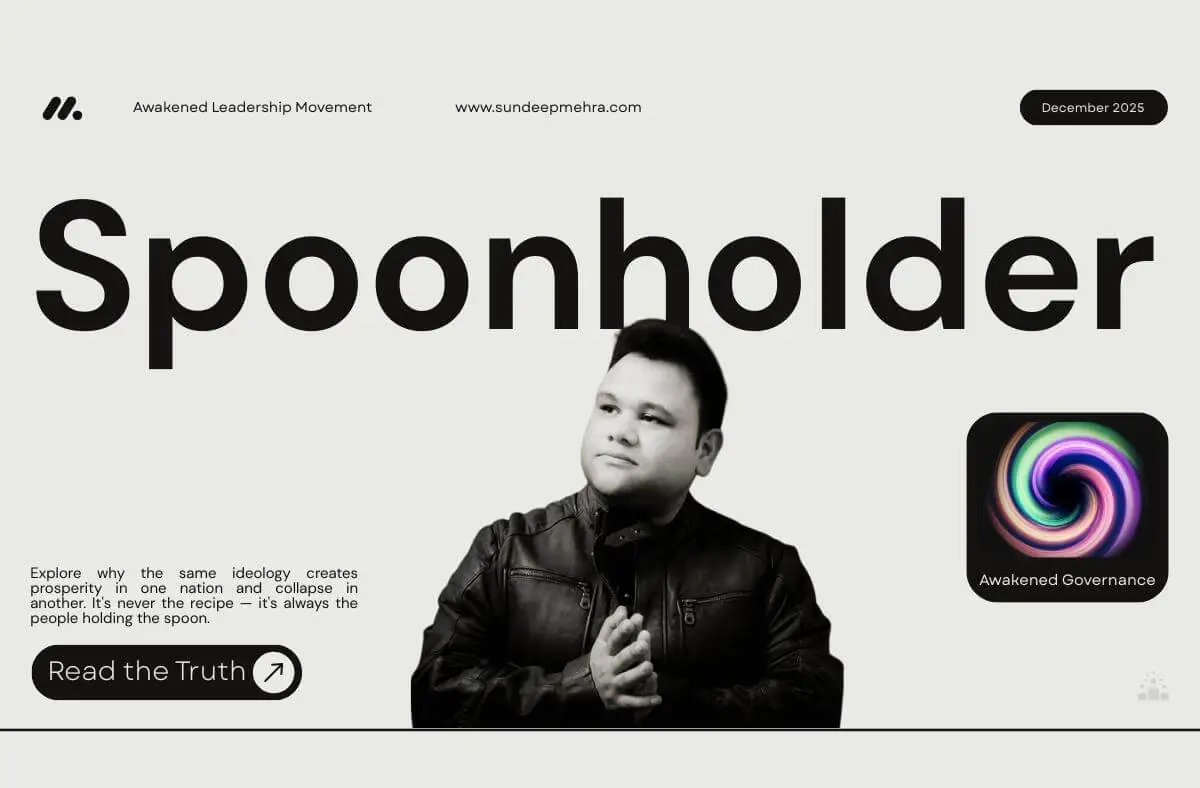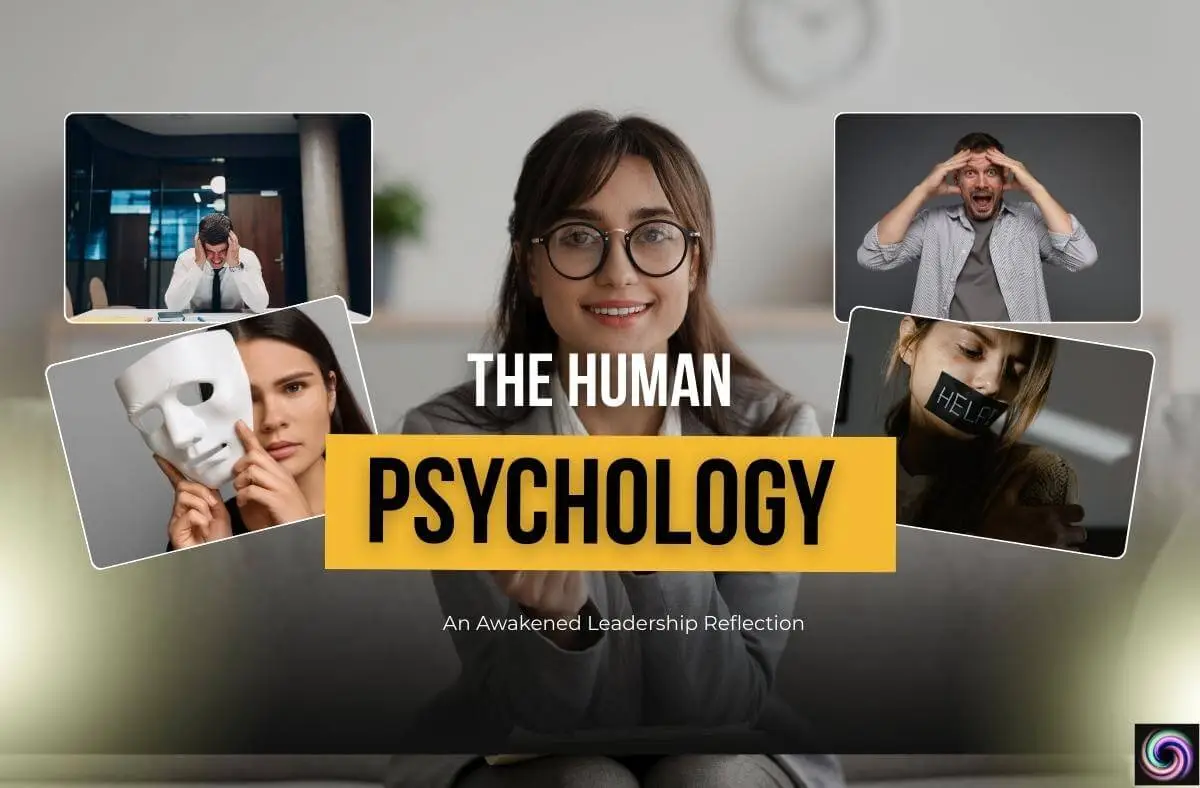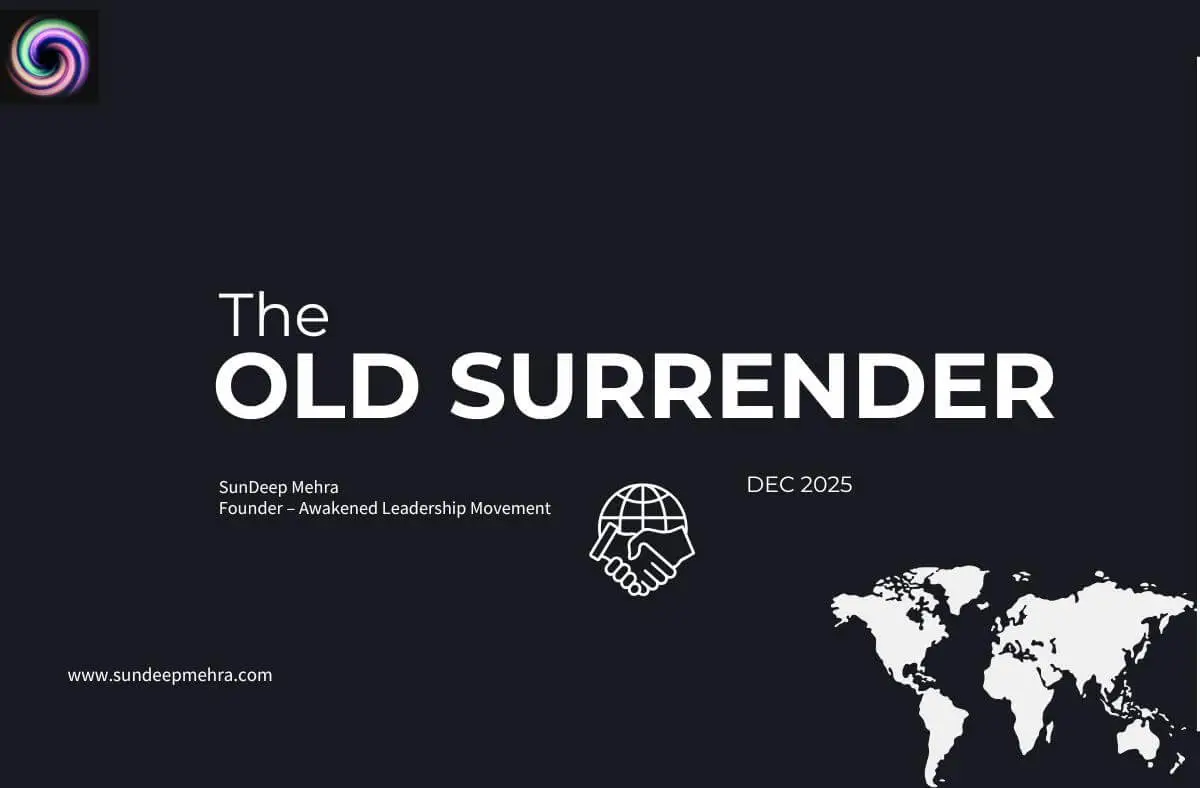
AI Without Ethics — Innovation or Collapse?
AI without ethics is not innovation or collapse?
We’ve seen this before. Every time humanity has been handed something new, something powerful, something promising, the arrival is never neutral. It enters our systems with force. With promise. And with consequence. Innovation, by its very nature, carries a cost. Whether we acknowledge it or not, that cost is determined by the intention behind the creation, and the integrity of those leading it.
When Innovation Outruns Awareness
AI without ethics is not a glitch in the timeline, it’s a mirror of it. It reflects what happens when advancement outruns awareness. When leaders prioritize power, speed, and dominance over truth, clarity, and collective good. When innovation becomes a race, not a responsibility.
The more powerful the innovation, the deeper the danger if it’s misaligned. And misalignment isn’t always loud, it’s silent. It happens in the quiet choices: unclear intentions, hidden interests, transactional leadership, unchecked ambition dressed up as disruption. When leadership lacks awakening, systems rot from the inside, and policies collapse before the public even knows they’re broken.
Artificial Leadership Is the Real Threat
The real danger of innovation today is not AI. It’s artificial leadership.
Leadership that starts with curiosity but ends in control.
Leadership that chases speed but forgets to carry the soul.
Leadership that measures progress by how many can be replaced, not how many are elevated.
Ethical AI leadership isn’t about regulating output. It’s about regenerating purpose.
And what we’re seeing now is a humanity sprinting toward “smarter” intelligence, without asking: What is the soul of intelligence?
We’ve trained our machines to think, calculate, and simulate brilliance, while neglecting the one thing machines can never hold: consciousness.
This is not just about job loss, tech layoffs, or AI misuse.
This is about building a future where human values aren’t optional, where AI with consciousness is not just a concept but a principle, and where awakening leads innovation, not the other way around.
Because any system that forgets the human will eventually lose its humanity.
Why Innovation Keeps Making Us Replaceable
But let’s go even deeper.
If innovation truly served the future, why has no major technological disruption ever been committed to making humans irreplaceable?
Why does every wave of innovation begin with bold promises, yet always lead to fewer humans in the room, not more?
Why do research labs, funds, and institutions pour billions into automation, replacement, and artificial power, yet so little into the kind of human evolution that machines could never replicate?
This is not just a technical oversight. This is a philosophical failure.
We build systems that collapse under pressure because we’ve built them on a value structure that makes humans the most replaceable variable.
We create jobs, industries, economies, and policies that depend on disposability, not dignity.
So when AI arrives, it doesn’t create chaos. It reveals it.
We blame the tool, but the fracture was always there.
Innovation becomes dangerous when it lacks the ethical clarity and awakened leadership to protect what matters most: the human soul.
If our greatest breakthroughs don’t safeguard humanity, then we haven’t innovated, we’ve only accelerated collapse.
Ethics is Not a Checklist. It’s Conscious System Design
We’ve misunderstood ethics. We’ve reduced it to legalities, frameworks, policies, and protocols, a checkbox to tick before launching a product, publishing a policy, or shipping a feature. But ethics isn’t a department. It isn’t a paragraph in the privacy policy. It isn’t what you consult after something has already been built.
Ethics is a system’s soul.
And when we talk about ethics in the context of intelligence and innovation, we are not talking about rules.
We are talking about karma.
Just as karma is shaped not only by the action, but by the intent behind it, so is ethics.
A decision made with the intention to protect, uplift, or prevent harm, even when difficult, holds different ethical weight than a decision made to dominate, manipulate, or advance self-interest at the expense of others.
In truth, ethical clarity is karmic clarity.
It asks not only what we’re creating, but why, for whom, at what cost, and with what integrity.
Why Ethics Can’t Be Added Later
Trying to “add ethics” to a finished system is like trying to add vegetables to a dish that’s already been cooked.
The timing is off. The flavor doesn’t integrate. The outcome is compromised. You can’t go back and stir in soul once the structure is already set.
You wouldn’t launch a rocket and then decide where it should land.
And yet that’s how we approach AI innovation, building it, scaling it, funding it, deploying it, and only afterward asking, “Where’s the impact?” or “What are the safeguards?”
True ethical ai leadership means building ethics into the system itself, from the first question, to the first line of code, to the first dollar of investment.
When ethics is not foundational, it becomes performative.
The Danger of Treating Ethics Like a Formality
Too many leaders treat ethics like terms and conditions, something pasted onto the bottom of the website to satisfy policy gates or public relations.
It’s no different than institutions that lease their platforms to unknown actors, allowing unethical events to masquerade as peace, governance, or awards summits, not because they believe in it, but because someone paid for the space.
This isn’t leadership. It’s opportunism in a suit.
And when leaders treat ethics as a formality, it creates a vacuum. In that vacuum, opportunists thrive, systems erode, and the very institutions that were meant to serve the world begin to serve only themselves.
What Ethical AI Leadership Actually Means
If you strip away every policy and every formality, here’s what ethical AI leadership comes down to:
Are we aligned with our soul?
Are we building systems that carry human values, not just artificial intelligence?
Are we designing from clarity, truth, wisdom, or from ambition, competition, and control?
Ethical AI leadership is not about checking for fairness in models.
It’s about standing in integrity at every level: research, funding, implementation, policy, perception, and societal impact.
It’s about making decisions not because we can, but because we must, to protect what it means to be human in a world increasingly shaped by systems that no longer feel human at all.
Until ethics becomes the starting point, innovation will remain incomplete, and leadership will remain artificial.
What is Awakened AI Governance And What It’s Not
Awakened AI Governance is not a framework. It’s not a policy model. It’s not a trend.
It is what happens when innovation meets consciousness and consciousness meets awakening.
When a system is led by individuals who are awake, to their own intentions, their shadows, their distortions, and their responsibilities, then governance is no longer just regulation. It becomes protection, redirection, alignment and truth.
Anything that touches a soul grounded in clarity, values, and discernment becomes different, it becomes whole.
So when governance is rooted in human values, in awareness, in the capacity to reflect and realign, that’s when it transforms into awakened AI governance.
This is not about being spiritual, and it’s not about not being spiritual. It’s about standing in a place beyond duality, where systems are no longer mechanical, and leadership is no longer performative.
It is where human design, karmic intent, soul-level clarity, and systems-level wisdom meet.
What Awakened AI Governance is Not
It’s not a slogan for panels. It’s not a checkbox for grants or a bullet point on a summit agenda.
And it’s definitely not something you can copy-paste into your system after launch.
Too often, terms like “ethical AI” and “conscious governance” are used as decorative labels, marketing language to pacify regulators or audiences, with no real embodiment underneath.
Some assume awakened governance means meditation and mysticism. Others dismiss it as spiritual fluff. But in truth, awakened AI governance sits at the intersection of the material and the spiritual, the code and the soul, the system and the source.
It doesn’t take sides. It completes them.
How It Redefines Leadership Itself
Today, most leadership models are incomplete. They focus on control, power, speed, output, and dominance. They illuminate one side of the moon and call it reality.
But awakened leadership sees the whole orbit. It brings governance into its true form, not just rule-setting, but also soul-aligning. Not just risk mitigation, but systemic awakening.
It restructures power not around hierarchy, but around wholeness. It dissolves the illusion that humans and machines are at odds, and shows how their coexistence can be designed with clarity, dignity, and shared evolution.
In this model, policies don’t suppress. They protect.
Systems don’t manipulate. They reflect.
Leadership doesn’t dominate. It guides.
What Would It Look Like If Institutions Adopted It?
It would look like courage. Like governments choosing awakening over acceleration, clarity over control. It would feel like systems returning to their soul, where trust isn’t a PR strategy, but a lived experience.
Where regulations don’t widen gaps, they close them. Where leadership doesn’t manage people, it honors them.
If institutions embraced awakened AI governance, it would be nothing short of a global societal and systemic revolution.
A return to human-centered intelligence. A culture where people no longer fear being replaced because systems would be designed to elevate what machines cannot touch: consciousness, creativity, compassion, wisdom.
The best part is, this isn’t policy reform, this is planetary healing through systems.
Systemic Collapse Without Soul: Learning from History
History doesn’t collapse because of enemies. Yes, you heard it right. It collapses because of disconnect. Not a lack of intelligence, but a lack of wisdom. Not a lack of planning, but a lack of alignment. Not a lack of innovation, but a lack of awakening.
You don’t need to name empires, institutions, or governments to know the truth. You don’t have to blame any, because the pattern has never changed, every system that forgets the soul, eventually breaks. The only difference now is scale.
In the past, these collapses were slow, regional, and delayed. Today, with the velocity of technology and the global reach of AI, collapse becomes exponential, faster, wider, deeper.
This is not about blaming the past. Awakened AI Governance is not here to dishonor what was built, it’s here to complete what was missing.
Every effort mattered. Every system contributed. But without soul, they remained incomplete.
What Collapse Always Has in Common
It is a very crucial point. Collapse is not always explosive. Often, it is silent erosion.
It begins when:
- Wisdom is removed from leadership
- Human values are separated from systems
- Power becomes more important than purpose
And above all, it begins with imbalance.
Some systems chose growth without integrity. Others chose security without compassion.
Many chose competition without clarity. But very few chose balance, of mind and soul, logic and ethics, speed and stillness, and that is what makes collapse inevitable.
The Warning Signs Are Here Again
If history whispered, today is shouting. We are seeing the same arrogance, now masked as advancement. Unchecked ambition repackaged as innovation. Authoritarianism dressed up as disruption. Power without presence. Speed without soul, and the world is watching — not with resistance, but with applause.
We have become bees to a poisoned river, mistaking movement for momentum. This isn’t a clean current, it’s a flood. And it carries more than water. It carries every unexamined intent, every unaligned decision, every unconscious structure ever designed without awakening.
The Past Can’t Be Changed. But the Future Must Be Claimed
Could history have been different if we had awakened leadership?
Yes. But that’s not the point.
Awakened leadership doesn’t live in regret. That’s not what I have pioneered, it lives in response.
It doesn’t blame the past, it honors it, learns from it, and transforms forward. Every time we point fingers at history, we delay our present responsibility, And every time governments blame each other, backdoor deals replace transparent decisions. Exactly, this is why collective trust is missing not because of what was, but because of what still is.
Awakened AI Governance is not about rewriting the past. It’s never about. It’s about re-rooting the future in values, in soul, in systems that no longer discard the human spirit for the illusion of performance.
The Future of AI Demands Awakened Leadership. Not Just Smarter Algorithms
The future doesn’t depend on AI. It depends on the leaders governing it.
Today’s AI leadership, in companies, institutions, governments, may look futuristic, but it’s built on outdated foundations. Founders, policymakers, and executives often speak like visionaries: announcing breakthroughs, showcasing behind-the-scenes innovation, hiring top talent, attracting investments, and forecasting revolutions.
But vision is not wisdom and no matter how smart your systems are, if your soul is unawakened, your impact will still be blind.
The world doesn’t need more announcements or press releases. It needs leaders who can hold power with presence and vision with values. It needs AI governance thought leadership that is not theatrical, not performative, and not self-congratulatory, but rooted in truth, purpose, and responsibility to humanity, not just shareholders.
Because right now, we’re not being asked to trust innovation. We are being forced to accept it, without question, without clarity, and without care.
What Awakened Leadership Brings That Nothing Else Can
Awakened leadership isn’t another model. It’s the realization that you are the model. It doesn’t give you answers. It awakens the space where you start living the answers.
This is what no framework, no compliance checklist, and no ethical governance protocol can offer. It’s not a set of policies, it’s a presence.
The more you live this model, the more this model reveals you. It adapts not only to systems, but to individuals, to their soul, their timing, their alignment.
It serves governments, organizations, societies, and institutions at their own level, yet still guides them all toward a collective future rooted in values, clarity, and wholeness.
Awakened leadership isn’t rigid. It’s living. It breathes with truth.
Becoming a True AI Governance Thought Leader
To become a real leader in AI governance, you don’t need more data. You need more depth. You don’t need louder headlines. You need quieter reflection.
This kind of leadership does not begin in documents, it begins in discovery. Not in metrics, but in meaning. It requires you to face your own truth. To sit with your intent. To surrender not in defeat but in alignment with a higher purpose that governs your decisions long before you govern technology.
You cannot create safe systems if you are unsafe within and you cannot build ethical intelligence unless your intelligence is also conscious.
What the World Will Look Like When Leadership Awakens
If institutions truly adopted awakened leadership in how they govern AI, they wouldn’t need to tell us they are creating a better world.
They would become that world.
Like a garden of wildflowers, truth doesn’t announce itself.
It is felt.
Its presence heals.
Its essence realigns the people who enter it without performance, without promotion.
Awakened systems do the same. They restore trust without marketing it. They earn respect without demanding it. They feel like nature: raw, real, and regenerative.
In a world shaped by awakened leadership, institutions don’t protect power, they protect people. They don’t separate the soul and system, they fuse them, and when that happens, we will not just build better AI, we will become the kind of humanity worthy of its future.
Who This is For: Institutions, Governments, and Visionaries Must Act Now
This message is not for a target audience. It is for humanity.
For governments and global bodies. For presidents, ministers, bureaucrats, diplomats. For CEOs, founders, public servants. For institutions, families, societies, and systems. For all those holding responsibility, and for those seeking it. For children, adults, visionaries, and future generations yet to be born. Because awakened AI governance is not about one industry.
It is about this planet. This time. This chance to choose wisely, while we still can.
Not Urgency. It’s Calling
You will hear many voices telling you to act “before it’s too late.” You will hear public stunts, digital dramas, media crises, and funding-driven PR echoing urgency as a tactic. But this is not that.
This is not urgency.
This is calling.
If you feel it, you’ll know.
It won’t come from fear, it will come from the still voice inside your leadership that knows something deeper is needed now.
If your soul is awakening, your systems will start to speak.
If your conscience is stirring, your institutions will start to remember.
This is the difference between performative reform and real transformation. One is driven by pressure. The other is rooted in purpose.
If You’re Ready, There Are Many Ways to Begin
If you feel moved by this message, if you are a policymaker, institutional head, government official, or conscious founder, you don’t need a checklist to proceed.
You simply need to listen and choose alignment over acceleration.
That might look like:
- A private conversation
- A boardroom dialogue
- A keynote address or speech that reframes leadership from the inside out
- A leadership awakening session, for you, your team, your policy group, or your nation
- Or simply sitting with your soul, asking the only question that matters:
Am I leading with truth, or just with tools?
If you wish to invite me into that space, as an AI governance keynote speaker, a leadership advisor, or a policy guide for ethical AI transformation, the door is open.
But even if you don’t, even if you walk away from this with no immediate action, let it awaken something. Because that alone may be the first honest act of leadership you have made in a long time.
Not a Service. It is a Soul Work
The Awakened Leadership movement is not for everyone, yet it is for everyone.
It is not meant to be for everyone, yet it is.
In a world where mediocrity is marketed and distraction is profitable, this kind of work is rare, valuable, and light-filled. It doesn’t sell urgency. It restores truth.
And if you’re ready, not just to speak about change, but to become the embodiment of it —
You’ll know.
Because the systems are already asking.
And so is your soul.
















